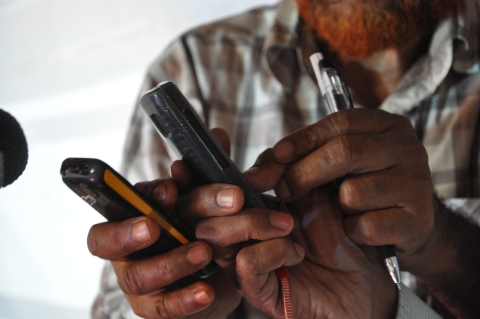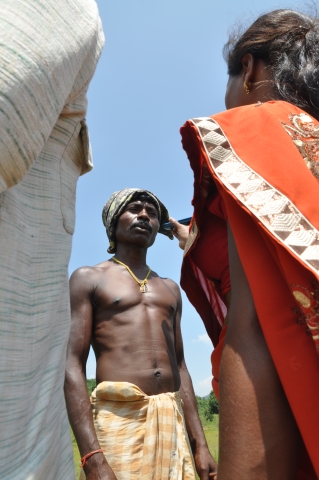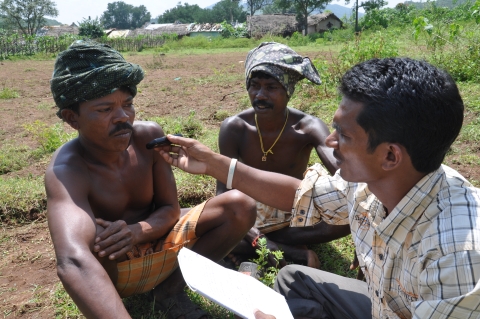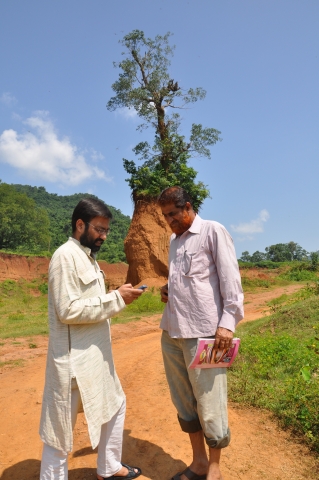
More than three dozen tribal participants learned to file news stories on cell phones in their own native language.

Trainees learn to gather information about health, weather and other important events, to share with other tribals who may be impacted.

Participants learn they can file reports in their own native languages.

Knight Fellow Shubhranshu Choudhary works with a trainee.
Odisha is one of the Indian states with a sizeable tribal population of roughly 22%. Tribals are also called Adivasis, or “the original inhabitants.” From any socio-economic standard, theirs is the poorest community in India. They live in deep forests and speak many different languages. There is no education provided in any of the languages they speak. In each census the number of people speaking these languages is decreasing.
So it was a pleasure to hear so many Adivasi languages being spoken at one place. Though Odia is the prevalent language of the state, the 37 workshop participants spoke in languages including Kui, Saura, Gadabha, Desiya, Gondi, Kuduk, Bonda, Nagpuri and Sabar. Five participants came from nearby state of Chhattisgarh. They also spoke Gondi.
The Shabari River marks the boundary between Chhattisgarh and Odisha. Tribals living on both sides of the river speak Gondi. So when we paired Madvi Hidma from Sukma in Chhattisgarh with Era Podiami from Koraput, across the river in Odisha, they were able to interview each other in Gondi.
Madvi Hidma, the journalist from Sukma, grew up in Chhattisgarh and studied in the predominant language Hindi and Era Podiami grew up in Odisha and studied in Odia. Had they not known their own tribal language, they would not have been able to communicate with each other. This linguistic divide is a problem for a growing number of young Adivasis.
Tribals in all the nearby bordering states have the same issues, as all of them are communities dependent on natural resources. But after getting educated in different languages and losing their own languages, increasingly they are unable to communicate about these common issues with each other. Communication makes a community. That’s really what these 37 participants learned in the workshop. They also learned how to communicate more effectively in their own native languages using new tools like mobile phones.
Though Koraput generates 70% of the hydro-electric power produced in the state, a huge majority of the villages in the area lack electricity. This is one example of how Adivasi people have been left behind as India has leapfrogged into the 21st Century. Now many of these Adivasis have a mobile phone. We trained six to moderate messages, which all of them will send through the CGnet Swara mobile news service using their mobile phones and speaking in their own languages.
This is the first communication platform of any type in all these languages. There are no newspapers, magazines, radio or TV in any of these tribal languages. Now they send messages in their own languages using the main Swara channel. We hope all of these Adivasi languages will have their own exclusive mobile phone-based communication platform soon to give tribals a way to communicate and preserve their languages and their unique culture.